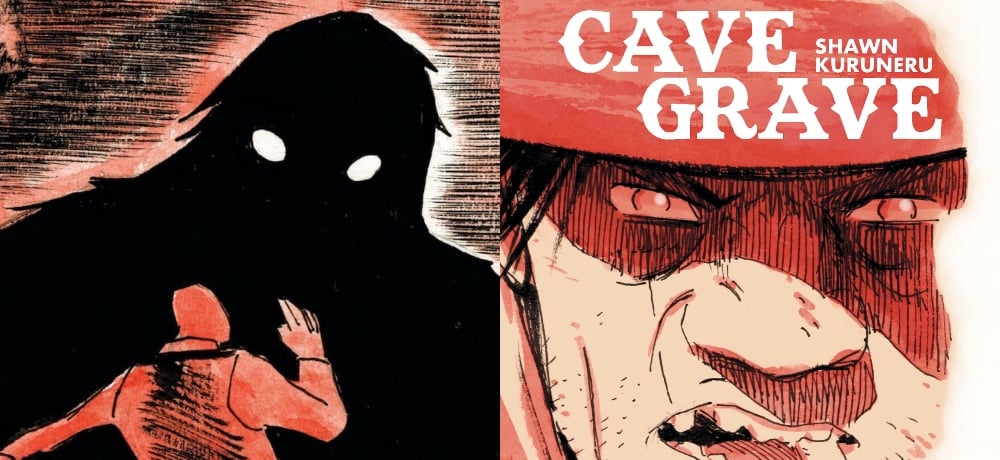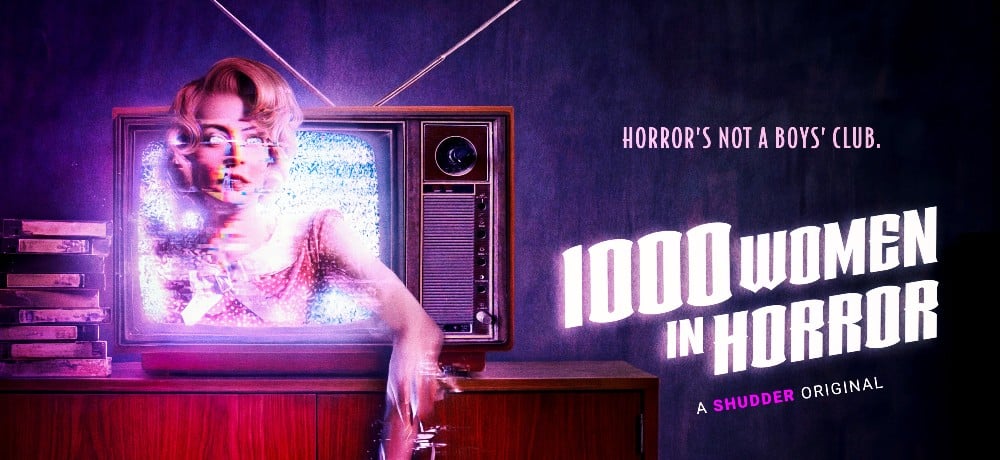





Exclusively arriving on Netflix this Friday is The Ritual from filmmaker David Bruckner, who has directed a variety of great genre projects over the last 10 years, including The Signal (which you’ll definitely hear more on later this month for its upcoming anniversary), V/H/S, and Southbound. For his latest movie, Ritual, Bruckner has adapted Adam Nevill’s novel of the same name. The film follows a group of friends (led by Rafe Spall, Hot Fuzz, Prometheus, Life of Pi) as they take a hiking vacation in honor of their friend who recently died, but their trip takes a sinister turn once they realize they’re being stalked by an unseen malevolent force that will stop at nothing to ensure they suffer greatly.
Daily Dead had the opportunity to speak with Bruckner earlier this week, and he discussed his approach to tapping into the horrors of Nevill’s novel, collaborating with Spall as well as the rest of his cast, the inspirations behind the mythology of The Ritual, and more.
Let’s start off by talking about the genesis of this project, and creating a folk-centric horror film with The Ritual, especially because we don’t see nearly enough stories like this in the world of genre cinema these days.
David Bruckner: Well, we had the benefit of basing this off of [Adam] Nevill's book, which goes much more in depth into who each of these guys are in a sense. Whenever working with adaptations, you do have to distill some of the territory he covers down into more defined beats in a sense, simply because you don't have as much time with a movie that you would have reading a book. But it starts with that in mind, where you've got that source material and you're trying to find a way to get across not just who these guys are in the situation they're experiencing, but who they are together as a group—their group dynamic.
To some degree, one of the things that interested me about the movie and the book was that Nevill had a character, Luke, who at one point or another, and for better or worse, was the alpha of this group of friends. As they have aged over time, and found themselves in their mid-30s, the tables had really turned, and he had lost the confidence of his friends in a lot of ways. I thought that was just a really interesting dynamic to stage a horror film upon, and so we created this convenience store moment at the front of the film, as a way to kind of distill those conflicts down into something the audience could experience. Most of the book is very much in Luke’s head, and stuff like that wouldn't really translate directly to a movie.
So, I think all those things informed it, and then I just had the benefit of a really great cast and they were all bringing something different to it, in a sense. All you can do is just do the character work, whether you're in the woods or not, and hopefully a lot of that shows up on screen.
Oh, it does. And it's interesting that you mention the convenience store moment because it makes for a great gateway into this story, where you’re forced to think about just what you would do in the same situation. And for me, that was a really human moment in The Ritual and it really helps define Luke as a character.
David Bruckner: There's a tension because he's playing the alpha, he's giving everybody hell for their ideas on what to do with their vacation and whatnot. And then in the moment where he could do something, he falters. So yeah, it instantly silences this brash character and I think Rafe had a really good handle on it from the get-go. When he got involved, we talked a lot about this kind of stuff. He's very interested in characters' weaknesses, and how they can sometimes not live up to what they had hoped to be, and I think that was a huge entry point for him.
I don’t want to go into too much detail, just so we don’t ruin anything for viewers out there, but there’s an interesting pagan-esque folklore at the center of The Ritual, which I found incredibly interesting, and really unnerving, too.
David Bruckner: Well, I think Nevill's book really hopped through several different chapters in the history of the forest. So, they were finding ruins from old Norse cultures, and then Christian cultures that erupted after that, and there were many different variances of paganism that they sort of brushed against, too. Again, we had to distill that down to something simpler for the movie, but we wanted the sense that you were wandering through a history that you were only getting glimpses of, and there is a thread that can be followed in that sense in the film.
But, you're always trying to figure out how much you want to show the audience in that regard, because there's a certain audience member that wants everything laid out for them in a sense, so they can get the whole picture. And then there's another argument to only brush up against those things. So, we tried to strike a balance in that regard, and the mythology is built on a lot of Norse concepts, but we definitely took license to take it in a direction where there this is the malevolent thing that pursues you, but it is something that hasn't been explored yet, and it could have existed in that world.
The Ritual feels very ambitious, and I'm sure shooting out in the wilderness like you did here comes with a whole set of challenges for you as a filmmaker. How did you tackle being able to take an entire ensemble and crew out in the woods and get this film made?
David Bruckner: The Ritual is not a huge movie, but it was the biggest thing I'd ever done. I mean, bubble gum and duct tape is pretty much the kinds of stuff I've worked on up until now. This was a huge leap of faith in that regard. Also, I wasn't able to bring a lot of my regular collaborators with me on this, but I did bring a few in the end. To shoot in the Romanian wilderness was super challenging, though. We were racing winter because we never knew when the snows were going to come and once the snows come, you have serious continuity problems. We intermittently had to deal with hail, thunderstorms, and snow. We had an earthquake, and we had a bear problem, too.
I was told that the particular area we were shooting in has more bears than anywhere else in Europe—they are these big, impressive European brown bears. I never saw one, but the crew would often catch video of them, so we had to have security on set. That kind of stuff is interesting to pull from in a sense. As long as you're actually safe, just the awareness that it's out there probably feeds into the movie one way or another.
But yeah, I wouldn't have it any other way. The fact that it's an endurance film, and that it required a certain amount of endurance to create it, that’s something you're pulling from the whole time. This was an on-location cast and crew, with everybody all in one lodge on top of a mountain in the Carpathians, and we all went for it.
You mentioned the endurance of this shoot. Can you talk about finding the cast that you knew would be able to do this film, because it's not just asking actors to go sit on location and shoot their scenes. There's a physical demand that comes with this film, beyond just the emotional things that they're going to go through as characters. How was it putting these guys together and making sure that they were going to be able to run the gamut from day one to the last day of shooting?
David Bruckner: Well, I had a lot of help from Rafe on that front. We knew we wanted Rafe to lead the movie, he was our first choice. I met with him when he was out here doing a TV show in Venice. We instantly spoke a similar language and saw the potential in this, so when he jumped on board, that was enough to guarantee the financing. Then, we brought on a great casting director, Julie Harkin, and she introduced me to many, many talented, fantastic actors.
I got to do group reads with all of the actors, and that really provides an opportunity for some rare exploration of the script, because you don't get a lot of rehearsal time on an indie of this size—if any. So, getting to measure their dynamics in the room, and calling some of these guys in several times, God bless them, to come in and read again, was a gift. That gave us room for everybody to explore what this is really going to be about, and what the challenges are going to be physically.
Once we got on set, Rafe really took it on as the lead actor, and a lot of days, I'm not sure if they did it every day, but a lot of days they would train in the morning before we would shoot, just to get in touch with the physicality of it all. That shows up on screen a great deal when it comes to their performances. But yeah, it was a lot of hiking into set and that particular plateau, I don't think there was more than 10 feet of level ground anywhere. Everything was on a slope, one way or another, so there's a lot of dimensional landscape going on, which I love because it photographs very interestingly, even if it can be really, really challenging to just get around. So, yeah, it was very physically intense for everybody, but particularly Rafe.